« March 2014 | Main | May 2014 »
April 30, 2014
Rule 4: Deliver work that changes the way clients think about lawyers.
At this blog, neither our writers nor anyone at Hull McGuire ever set out to be customer/client service experts or gurus. We are not experts or gurus on the subject. (Besides, most of the service rubric, with gems like "client care" and "customer experience", sounds a little like Mr. Rogers Goes to Law School.) However, based on actual experience lawyering, we wrote and published 12 Rules of Client Service in installments during a six-month period starting in October 2005.
The 12 rules do seem to have legs. We are flattered. In whole or in part, they regularly appear in publications and sites for lawyers and non-lawyers (e.g., accounting and real estate). They also get play every now and then in a book. Some folks who discuss, quote or mention them like all 12 rules. Others like one or two in particular. Our favorite? It's Rule Four: Deliver Legal Work That Change the Way Clients Think About Lawyers. It's our "Harry Beckwith" rule. Beckwith was a huge influence on how we could see making changes in lawyering--and the idea here is really his, not ours. An excerpt from Rule 4:
Why try "to exceed expectations" when the overall lawyer standard is perceived as low to mediocre? If your clients are all Fortune 500 stand-outs, and the GCs' seem to love you and your firm, is that because your service delivery is so good--or because other lawyers they use are so "bad" on service? Why have a low standard, or one that merely makes you look incrementally more responsive and on top of things than the boutique on the next floor up? Why not overhaul and re-create the whole game?
If you read the better writers on selling and delivering services, like Harry Beckwith in Selling The Invisible, you pick up on this simple idea: Rather than under-promise/over-deliver, why not change the way people think of lawyers generally and what they can expect from them generally? Get good clients--those clients you like and want--to keep coming back to you by communicating in all aspects of your work that you care deeply about your lawyering for them, you want to serve their interests on an ongoing basis and that it's a privilege to be their lawyer. Show them you fit no lawyer mold.

Posted by JD Hull at 03:06 PM | Comments (0)
April 29, 2014
Santa Monica, 1904.
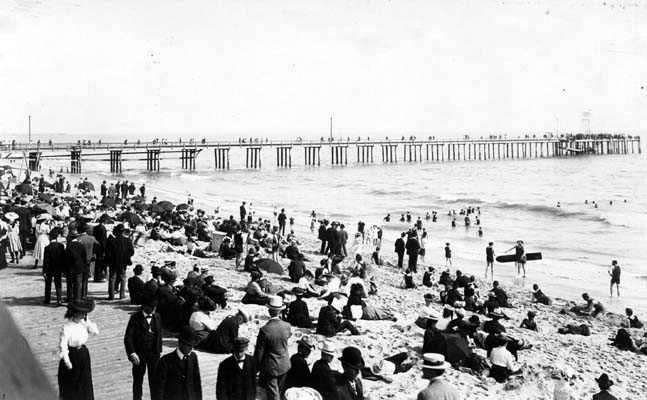
Source: Legendary Surfers
Posted by JD Hull at 11:59 PM | Comments (0)
April 28, 2014
Rites of Spring: Evaluations based--at least in part--on client service standards.
This blog began nine years ago as a daily diversion from the demands of lawyering. It became an eclectic soapbox for a few pet issues and interests: discovery and trial, arbitration in the Americas and abroad, popularly-elected state judges, cultural literacy in America, online anonymity, Parker Posey, the wonders of London and Paris--and building and enforcing customer service regimes for professionals. Lawyers especially. If you are serious about building and keeping a client service culture, weave specific client service standards into every employee performance review. We think it's an idea here to stay.
.jpg)
Posted by JD Hull at 02:26 PM | Comments (0)
April 27, 2014
Some days, Jack Kerouac got it right.
Still poetry month, right?
Kerouac is not my favorite wordsmith--but sometimes he got the thrill and promise of simply being alive pitch perfect.
The famous "mad to be saved" passage happens early on, in the first chapter On The Road.
...the only people for me are the mad ones, the ones who are mad to live, mad to talk, mad to be saved, desirous of everything at the same time, the ones who never yawn or say a commonplace thing, but burn, burn, burn like fabulous yellow roman candles exploding like spiders across the stars.
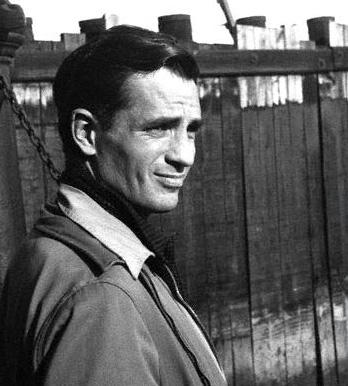
Posted by JD Hull at 03:55 PM | Comments (0)
April 25, 2014
Pantheon: Annabeth Gish.
Annabeth Gish has long resided our Pantheon. She is a versatile artist and human.

Posted by JD Hull at 11:49 PM | Comments (0)
Friday: And speaking of Johnny Winter...
It's a mean old town to live in by yourself.
Posted by JD Hull at 12:59 AM | Comments (0)
April 24, 2014
In Texas: Dallas County jury awards family $2.9 million in "intentional" nuisance fracking case.
In Parr v. Aruba Petroleum, Inc. (Dallas County, TX 2011), a Texas family sued an oil company for health problems and loss of property value arising from wells drilled in the Barnett Shale Formation near their 40 acre ranch. For some details plus a copy of the plaintiffs' complaint in Tuesday's "Earth Day" verdict, see the blog post of the Parrs' attorney, David Matthews in "$3 Million Verdict in Texas Fracking Case". The jury apparently found 5-1 that defendant Aruba had "intentionally" created a private nuisance despite Aruba's contentions "that it had complied with air quality and drilling safety guidelines set by the Texas Railroad Commission and Texas Commission on Environmental Quality (TDECQ)". Aruba will appeal.
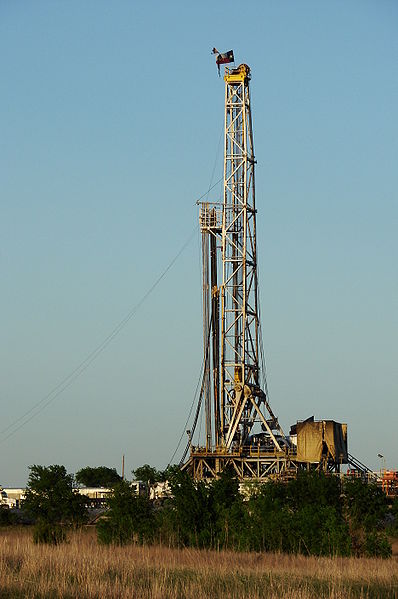
Drilling in Barnett Shale Formation near Alvarado, Texas
Posted by JD Hull at 07:43 PM | Comments (0)
Ben Disraeli on Bad Books.
Books are fatal: they are the curse of the human race. Nine-tenths of existing books are nonsense, and the clever books are the refutation of that nonsense.
--Benjamin Disraeli (1804-1881)
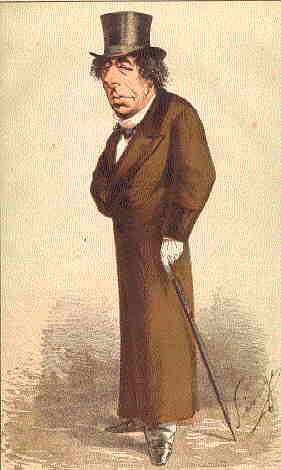
"Dizzy"
Posted by JD Hull at 12:19 AM | Comments (0)
April 23, 2014
Happy 450th, Mr. Shakespeare.
.jpg)
Posted by JD Hull at 09:45 AM | Comments (0)
April 22, 2014
Earth Day's Founders: Gaylord Nelson and Denis Hayes.
The first Earth Day was on April 22, 1970. It was founded by the late U.S. Senator Gaylord Nelson (D-Wis.), and Denis Hayes, the National Coordinator for the 1970 Earth Day. Nelson was a lawyer, outdoorsman, true Wisconsin character, ex-governor and hardworking legislator. To get an idea of him, see my 2005 remembrance of "The Earth Day Senator", which appeared in Environmental Protection Magazine after Nelson's death in July of 2005. An excerpt:
In his first speech as a senator in March of 1963, he declared the erosion of the nation's air and water quality to be a pressing national issue. This was new and different stuff: "We need a comprehensive and nationwide program to save the natural resources of America," he said. "Our most priceless natural resources...are being destroyed." Conservation, once the province of civics classes, the scouting movements, and a few scattered organizations like the Sierra Club, was about to become political.
In the 1960s, Denis Hayes attended Stanford University where he was student body president and a diligent activist against the war in Viet Nam. After Stanford, Hayes was attending Harvard's Kennedy School of Government when Nelson in 1970 tapped him to spearhead the first Earth Day. Hayes became a visionary leader, solar power advocate, author and organizer in the then-new environmental movement. See and hear excerpts from this 2009 interview with Hayes by The Guardian, the powerful British daily, on progress made both in America and globally over the next four decades.
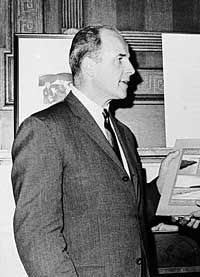
Nelson
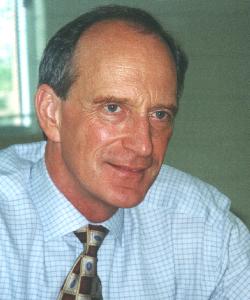
Hayes
Posted by JD Hull at 11:36 PM | Comments (0)
April 21, 2014
England's most famous Etonian suffers a lapse in class.
Did the British PM blow a few "dog-whistles" at cranky devout Christian voters last week? Though almost a week old, this story has legs--in and beyond Old Blighty--because it's so, well, appalling. It is also cringe-worthy for any American, with or without an understanding of English constitutional law, who stayed awake during high school civics back in Indiana. David Cameron, Britain's Prime Minister and Leader of the Conservative Party, apparently decided to tap the ever-dwindling Church of England "cultural" vote. The Guardian was one of the first to report it in "Prime Minister David Cameron: I am evangelical about Christian faith". To make matters worse, Cameron also said that England was a "Christian" country. A day later, the Guardian's Polly Toynbee wrote her own piece, "David Cameron won't win votes by calling Britain a Christian country", and asked
So why God now?
His core message, "This is a Christian country", dog-whistles to key voters. Ostensibly, it soothes the noisy but electorally few affronted folk in the pews angry about gay marriage, whose fury he had underestimated. For them Cameron ladled out syrupy retro-visions of the C of E [Church of England] of his Oxfordshire upbringing, its liturgy and heritage, his love of early morning eucharist at his children's school's church. But his "Christian country" message is really whistling to the errant flock fled to Ukip. They may never attend, but the C of E is a cultural identity marker for those sharing Nigel Farage's distaste for foreign tongues on his commuter train.
Naturally, Cameron is careful to say "this is not somehow doing down other faiths". But those who feel threatened on account of their non-Christian faith won't find Christian branding reassuring. This week, an article on this site described how the far right is using pork to persecute Jews and Muslims, as Marine Le Pen stops schools serving non-pork options in the French towns she now controls. More horrible still, members of the Flemish Vlaams Belang party reportedly stormed into a school and forced pork sausages into children's mouths.
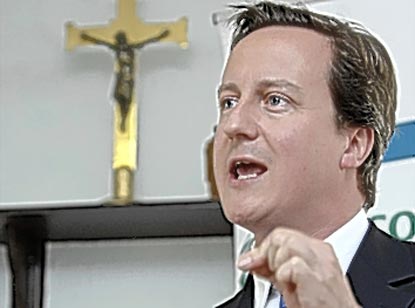
Can I get an amen?
Posted by JD Hull at 11:59 PM | Comments (0)
April 20, 2014
Easter, 1916: A terrible beauty is born.
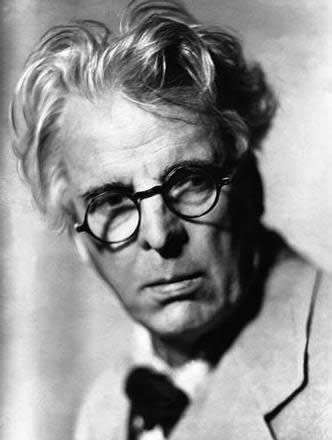
On Easter Monday, April 24, 1916, Irish republican leaders staged an Easter Rising against British rule in Ireland. The uprising, the most significant Irish revolt since 1798, took place mainly in Dublin. It was unsuccessful. The British eventually executed 16 people, including most of the uprising's leaders, for treason. In the five months that followed, William Butler Yeats, poet, pol, patriot and mystic, wrote and completed "Easter, 1916":
I have met them at close of day
Coming with vivid faces
From counter or desk among grey
Eighteenth-century houses.
I have passed with a nod of the head
Or polite meaningless words,
Or have lingered awhile and said
Polite meaningless words,
And thought before I had done
Of a mocking tale or a gibe
To please a companion
Around the fire at the club,
Being certain that they and I
But lived where motley is worn:
All changed, changed utterly:
A terrible beauty is born.
That woman's days were spent
In ignorant good-will,
Her nights in argument
Until her voice grew shrill.
What voice more sweet than hers
When, young and beautiful,
She rode to harriers?
This man had kept a school
And rode our winged horse;
This other his helper and friend
Was coming into his force;
He might have won fame in the end,
So sensitive his nature seemed,
So daring and sweet his thought.
This other man I had dreamed
A drunken, vainglorious lout.
He had done most bitter wrong
To some who are near my heart,
Yet I number him in the song;
He, too, has resigned his part
In the casual comedy;
He, too, has been changed in his turn,
Transformed utterly:
A terrible beauty is born.
Hearts with one purpose alone
Through summer and winter seem
Enchanted to a stone
To trouble the living stream.
The horse that comes from the road.
The rider, the birds that range
From cloud to tumbling cloud,
Minute by minute they change;
A shadow of cloud on the stream
Changes minute by minute;
A horse-hoof slides on the brim,
And a horse plashes within it;
The long-legged moor-hens dive,
And hens to moor-cocks call;
Minute by minute they live:
The stone's in the midst of all.
Too long a sacrifice
Can make a stone of the heart.
O when may it suffice?
That is Heaven's part, our part
To murmur name upon name,
As a mother names her child
When sleep at last has come
On limbs that had run wild.
What is it but nightfall?
No, no, not night but death;
Was it needless death after all?
For England may keep faith
For all that is done and said.
We know their dream; enough
To know they dreamed and are dead;
And what if excess of love
Bewildered them till they died?
I write it out in a verse -
MacDonagh and MacBride
And Connolly and Pearse
Now and in time to be,
Wherever green is worn,
Are changed, changed utterly:
A terrible beauty is born.
Posted by Holden Oliver (Kitzbühel Desk) at 11:42 PM | Comments (0)
April 19, 2014
Work-Life Pulitzer.
The difference between a job and a career is the difference between forty and sixty hours a week.
Robert Frost (1874-1963) spent his life as a poet, student, teacher, newspaper reporter, farmer, factory worker, father, husband and accomplished Yankee. He was awarded the Pulitzer Prize four times.
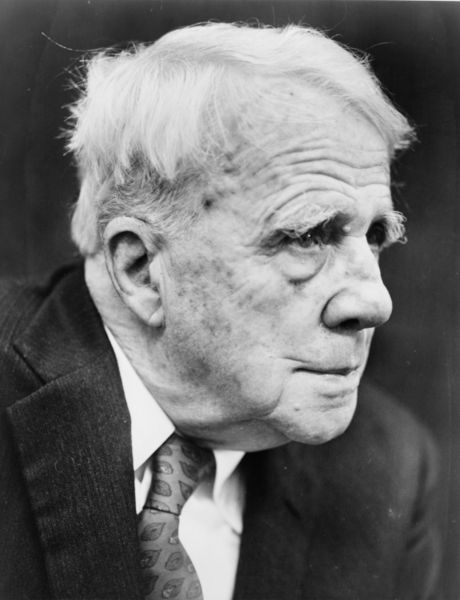
(New York World-Telegram & Sun)
Posted by JD Hull at 11:59 PM | Comments (0)
April 18, 2014
The MC5: The Revolution as Serious Fun.
The MC5 truly believed in the power of rock & roll to change the world.
--Rolling Stone
Below is the MC5's Wayne Kramer singing "Ramblin' Rose" at Wayne State University in Detroit in July 1970, two months after the shootings on May 4, 1970 at Kent State. Note that Patti Smith's husband, Fred "Sonic" Smith, now deceased, is the non-dancing guitarist in the dark cowboy shirt. One critic: "The MC5 brought out the animal in every audience."
Posted by Holden Oliver (Kitzbühel Desk) at 11:59 PM | Comments (0)
Statesboro, Bulloch County, Georgia.
Mother died and left me reckless,
Daddy died and left me wild.
No, I'm not good lookin',
I'm some sweet woman's angel child.--William Samuel McTier (1898–1959)
Posted by Holden Oliver (Kitzbühel Desk) at 11:59 PM | Comments (0)
April 17, 2014
National Academy of Sciences: Methane releases from Pennsylvania fracking grossly underestimated.
A significant environmental development appeared in the Los Angeles Times two days ago. The story was apparently missed by mainstream press in western Pennsylvania. See "EPA drastically underestimates methane released at drilling sites", which begins:
Drilling operations at several natural gas wells in southwestern Pennsylvania released methane into the atmosphere at rates that were 100 to 1,000 times greater than federal regulators had estimated, new research shows.
Using a plane that was specially equipped to measure greenhouse gas emissions in the air, scientists found that drilling activities at seven well pads in the booming Marcellus shale formation emitted 34 grams of methane per second, on average. The Environmental Protection Agency has estimated that such drilling releases between 0.04 grams and 0.30 grams of methane per second.
The study, published Monday in the Proceedings of the National Academy of Sciences, adds to a growing body of research that suggests the EPA is gravely underestimating methane emissions from oil and gas operations. The agency is expected to issue its own analysis of methane emissions from the oil and gas sector as early as Tuesday, which will give outside experts a chance to assess how well regulators understand the problem.
Hat tip: Pittsburgh-based businessman Michael Simms.
Joshua Doubek photo: Halliburton frack site, Bakken Formation, North Dakota
Posted by JD Hull at 11:01 PM | Comments (0)
April 16, 2014
Sarah Silverman for Congress in 2016, New Hampshire, 1st Congressional District.
And what's not to like? Forty-three now, she's smart, well-educated, articulate, outspoken--and of course funny. She grew up in Manchester, NH. She is very likely a Democrat. Interesting fact: Silverman's mother, Beth Ann, was Sen. George McGovern’s personal campaign photographer during his 1972 presidential bid.
Posted by Holden Oliver (Kitzbühel Desk) at 11:59 PM | Comments (0)
Dupont Circle: Best 'Hood in DC.
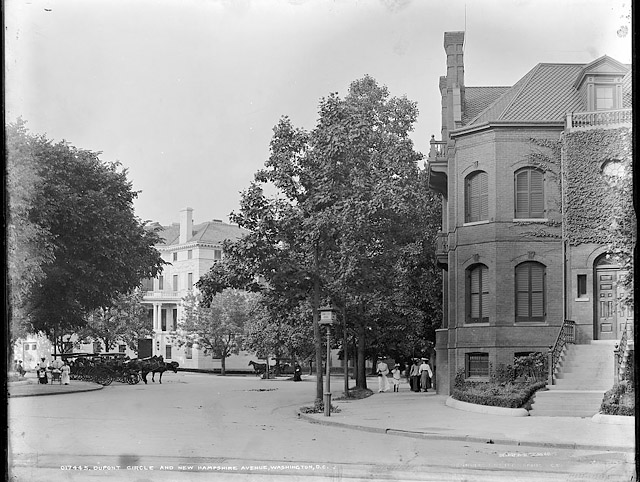
Posted by JD Hull at 11:31 PM | Comments (0)
April 15, 2014
Is clean technologies still a fad?
For over three decades, all manner of "alternative energy" products have been pitched as safer, healthier and cheaper ways to energy independence, especially during periods when oil prices are at their highest. Certainly, the idea of cleantech, green technologies and renewable resources is not new. The chronic obstacle for the industries that have formed around the idea? Making non-fossil energy sources affordable to consumers. But some cost-efficiencies are finally being achieved. At the very least, clean technologies these days is more than a recurring new age fad. See "Myths and realities of clean technologies", just out from McKinsey & Company.
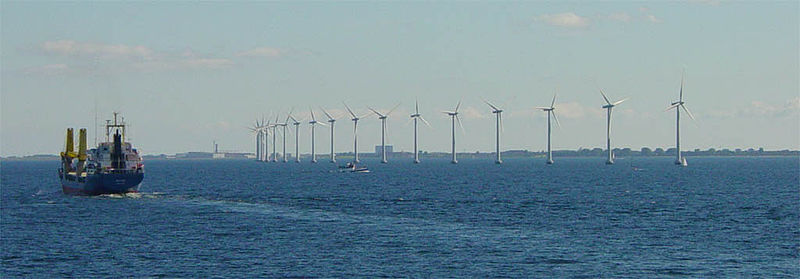
Offshore wind farm near Copenhagen
Posted by JD Hull at 01:43 PM | Comments (0)
April 14, 2014
The Economist: "Ukraine, the disappearing country"
Here. For Russia, “this region will not be enough. They want everything. They will take all Ukraine.”

Th Economist
Posted by JD Hull at 05:19 PM | Comments (0)
Our advice on Mondays? Wilson. Pickett.
Posted by JD Hull at 05:12 PM | Comments (0)
April 11, 2014
James Michener: On Rewriting.
I'm not a very good writer--but I'm an excellent rewriter.
--James A. Michener, 1907-1997

Michener, April 1951, Nina Leen (Life Magazine)
Posted by JD Hull at 01:59 AM | Comments (0)
Discovery: It shouldn't be a Wankfest, folks.
Trials are always about people.
Even high-stakes business v. business cases before federal trial courts or arbitrations panels abroad will lead your staff to an American Legion hall, a local official, a fire chief, or a beat reporter for a small newspaper.
Before you schedule a deposition, do some informal investigation. Next time a new case begins, resist rushing into written discovery and depositions. Step back from the discovery routine--you'll get into that bubble soon enough--and learn a few things on your own.
This is not a new idea. Over 20 years ago, James McElhaney, a gifted lawyer, writer and teacher of trial tactics, and the ABA Litigation Section, first published McElhaney's Trial Notebook, now in its fourth edition. Discovery, McElhaney noted, is a good way to learn what a witness will say, or to bind a party or witness to a particular version of the facts. But, he continued, it is also "a very inefficient way to get information."
Let us add to that:
Most of the formal discovery you see is worse than inefficient. It is often unimaginative, cookie-cutter, straight-up lazy, wasteful, client-unfriendly and a hopelessly dumb-ass way to learn much of the background information, and many of the facts, that will frame and flesh out your case. This is especially true of depositions, and (for that matter) any other live sworn testimony. If you really don't have to "wing it", don't.
So, hey, think a bit on your own. Prepare--but do that differently.
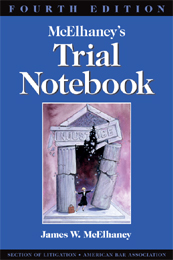
Each deposition should suggest a unique set of background questions you can have answered (or partially answered) before you begin. It's just a matter of curiosity and do-it-yourself "trolling" for information you and yours can get first-hand on your own. At a minimum, you'll have a better outline, a better deposition, and an adversary and deponent who knows you show up "ready to play".
Just as witnesses say unexpected and even startling things when they testify, useful and even surprising facts are available about opposing parties and witnesses through the Internet, court files, published cases, local boards and agencies, social clubs with websites, D&B reports, news archives, business libraries and even phone conversations other humans.
No, don't hire an investigator for this right away. You and your staff can handle this with a little verve and common sense, save money, and get steeped in the case.
It's fun. Roll up your sleeves. Un-weenie yourselves.
And why use deposition time to learn things you and yours can learn quickly and inexpensively and lash together from: phone calls, live humans, your client, client employees, ex-girlfriends, ex-husbands, ex-bosses, bartenders, town drunks, libraries, the Moose Lodge, store clerks, hopeless gossips, old dudes in cafes who drool on their shirts, neighborhood urchins, newspaper reporters--and even the most rudimentary Google search?
These inexpensive but ignored sources are often inconsistent with information parties will give about themselves in formal discovery.
The upshot?
1. Don't take the deposition at all. You may not need to take that deposition.
2. Take a much better and shorter one--and do much better written discovery requests. If you do take it, you will take a better one. You won't need to waste time asking about things which are easily ascertained beforehand. If you serve written discovery before depositions--you generally should do it before--your interrogatories and requests for documents under Rules 33, 34 and 45 will be much better. (Formal written discovery, in my view, is of even poorer quality and even less informed than most depositions taken.)
3. If you need to, confirm what you have learned with a quick series of leading questions. Anything that you have learned about the deponent from investigation and informal discovery, and that you need to confirm--i.e., work history, education, past events in the news, addresses, past titles, ex-employees, mistresses, ex-wives, published sonnets, tastes in biker bars, and current businesses and business associates? Go over it and confirm quickly at the outset (or at the right interval for that information) with the deponent.
Posted by JD Hull at 12:59 AM | Comments (0)
April 10, 2014
The Duke experience: Salon excerpt from new book about Duke lacrosse rape case.
In early 2006, three members of Duke University's nationally ranked lacrosse case were falsely accused of rape in a protracted, much publicized, over-hyped criminal case brought in Durham, North Carolina (where Duke, for odd historical reasons, is located). It led, for starters, to the resignation of the Duke lacrosse team's head coach, cancellation of the remainder of school's 2006 lacrosse season, and the disbarment of the case's initial lead prosecutor for Durham County, North Carolina. The lacrosse case even had/has its own legal blog, Durham-In-Wonderland, still continuing, and one of the the better analytical blawgs out there. And now there's a new book (the third, by my count) about the episode: "The Price of Silence: The Duke Lacrosse Scandal, the Power of the Elite, and the Corruption of Our Great Universities" (Scribner) by William D. Cohan, a well-regarded business writer. Cohan, like me, is a Duke grad. The party where the alleged rape occurred was in a house a few down from my house at Duke, on Buchanan Avenue, when as an undergraduate I worked on Duke's daily newspaper. I am still active in things Duke. So I will buy and read the book. In the meantime, see this excerpt from the book in Tuesday's Salon. Note: While anyone could gather from the Salon excerpt alone that Cohan is a fine researcher, investigator and storyteller--I already know he is, having read his previous book on Goldman Sachs--I'll read the whole book before spouting off on it. Except it's not premature to comment on the book's sensational full title, i.e., with the subtitle ending in "the Power of the Elite, and the Corruption of Our Great Universities". It's ambitious; that's fine. But it panders a bit, too, even if the book supports it. In the meantime, let's just ask that Scribner be less trite and spastic when it shills books.
.jpg)
Posted by JD Hull at 02:53 PM | Comments (0)
April 08, 2014
Ontario trial judge: "Paper must vanish from this Court..."
So says Canadian Justice David M. Brown in a case administration decision penned on April 5 in Bank of Montreal v Faibish, 2014 ONSC 2178 (CanLII). The always-excellent SLAW, Canada's online legal magazine, just reported this. Excerpt from Justice Brown's decision, triggered in part by "profound frustration":
I know there are judges available who are chomping at the bit to conduct more e-trials. Paper must vanish from this Court and, frankly, the judiciary cannot let the legal profession or our court service provider hold us back. Accordingly, I order that the six-week trial of the Loretta and Brome Actions be conducted as electronic trials. More than enough time exists before the October 6 start date to organize the trial materials electronically. I order counsel to provide me with a formal e-trial plan at the June 26, 2014 case conference.
Posted by JD Hull at 04:14 PM | Comments (0)
April 07, 2014
Think you can prepare and skillfully interview anyone? Then try Chicago mayor Rahm Emanuel sometime.
Think you can skillfully interview anyone? I do. I take pride in dragging out facts, doing cross and direct, taking depositions, putting people at ease and, in general, making contact with people and getting them to open up. I'm good at it, others tell me. And then this morning I read The New Republic's recent interview with Chicago mayor Rahm Emanuel, former Chicago congressman and Obama's colorful ex-chief of staff. This was that rare you-cannot-prepare-for-everything interview. TNR reporter Issac Chotiner was a very good sport--few journalists or lawyers could have done better. Me? Well, I like Mayor Emanuel. But I would have likely lost my temper at a couple of junctures. Strike that. Not likely. For sure. It's an interesting if contentious conversation.

Washington Post
Posted by JD Hull at 02:18 PM | Comments (0)
April 06, 2014
Cross-Culture: Canada, the next global player.
"Deferential yet stoic" Canada is poised for a bigger global role, says Cross-Culture in its new post, "The Quiet Colossus". One of the best articles at Cross-Culture yet. Note in particular the points on Canadian-Russian partnerings in the Arctic region. Excerpt:
Canada, multilingual and multicultural, with favourable demographics and substantial economic freedom, is destined to exercise far greater influence amid the great powers than she hitherto has chosen to do: laid back and universally popular (who hates Canadians?), protected on either side by two great oceans and with access to a slowly-warming third, and with a friendly neighbour to the south, Canada can choose her friends and partners with little fear of being rebuffed.
No two countries in the Arctic region share so much in common as Canada and Russia. A map of the Arctic Ocean with the North Pole at its centre shows that the ocean is virtually closed by the coastal areas of Russia, Canada and Greenland. By far the largest Arctic nations, Canada and Russia – neighbours across the North Pole – bear a shared responsibility for the state of affairs in the region and must see each other as strategic partners.
Posted by JD Hull at 11:27 PM | Comments (0)
Sunday: Townshend Gives Blood.
Posted by JD Hull at 02:43 PM | Comments (0)
April 05, 2014
Saturday's Jean-Paul Henri, Existential Cat: "Being, Nothingness and Le Vet."
Jean-Paul, the existential cat, belongs to one Will Braden.
Posted by JD Hull at 12:02 AM | Comments (0)
April 04, 2014
Legal London in the Spring: Love, Labor and Literature
Each Spring, we send you the complete text of a circa-1595 comedy by Shakespeare, Love's Labour's Lost. You can read it aloud--or, even better, act it out. First performed before Queen Elizabeth at her Court in 1597 (as "Loues Labors Loſt"), it was likely written for performance before culturally-literate law students and barristers-in-training. The notion was that such well-rounded humans would appreciate its sophistication and wit at the Inns of Court in still over-percolating Legal London. And, most certainly, it was performed at Gray's Inn, where Elizabeth was the "patron". Interestingly, the play begins with a vow by several men to forswear pleasures of the flesh and the company of fast women during a three-year period of study and reflection. And to "train our intellects to vain delight".
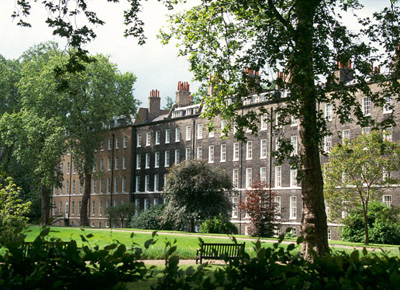
Posted by JD Hull at 02:10 PM | Comments (0)
April 03, 2014
Long Beach
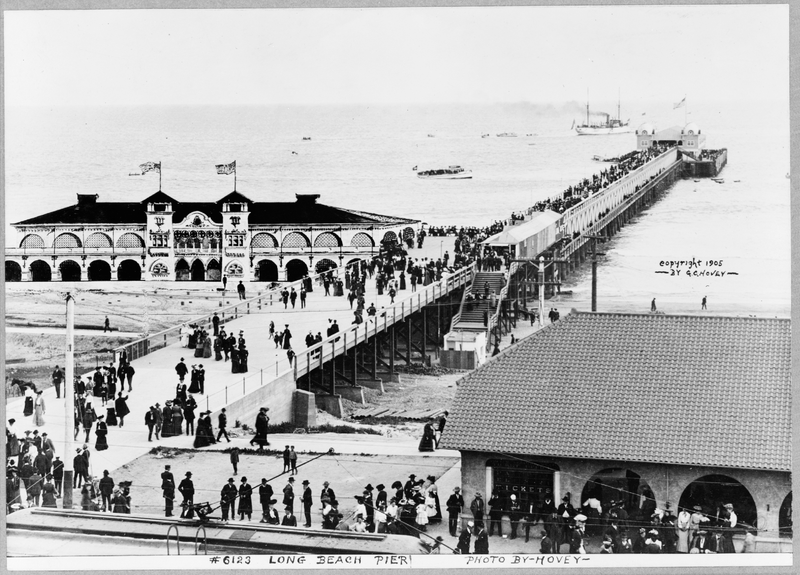
The Pier, 1905
Posted by JD Hull at 02:09 PM | Comments (0)
April 01, 2014
A backstage pass to the world.
The Strip, Sunset Boulevard, West Hollywood. As the fictional movie character John Milton said, law is a backstage pass to the world. How many lawyers have a practice with client meetings two blocks from the Viper Room? Probably quite a few. But I grew up in the Midwest--where TGIF restaurants are considered to be pretty wild, and it's eccentric to wear a trench coat and tasseled loafers on the same day. So this kind of meeting venue may be my notion of gratitude.
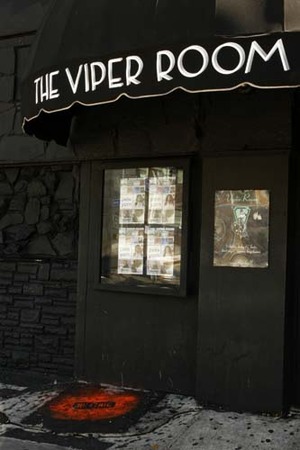
Posted by JD Hull at 12:54 PM | Comments (0)